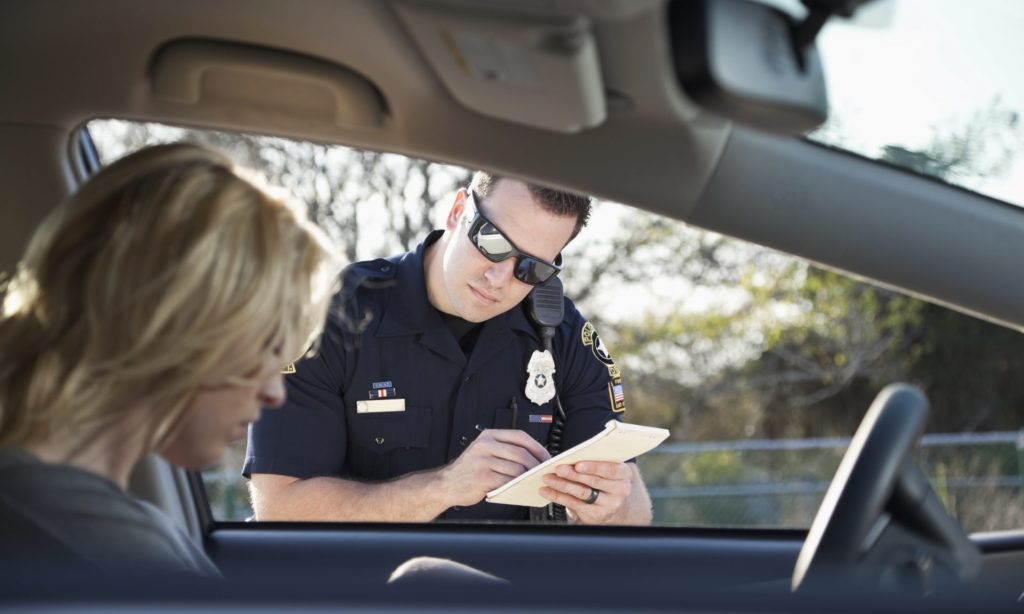
Have you ever been pulled over, and your first thought is “how this is going to affect my insurance”? If so, your not alone.
We frequently get calls from insureds whom are wondering how a recent speeding or other traffic ticket is going to affect their rates. We’ll answer some common questions.
It should first be said that there is no hard and fast amount that your insurance rates will increase because of a ticket. Each insurance company places a different weight on how much a ticket should factor into someones premiums. Some carriers are as low as 5-10%. We’ve seen others where one speeding ticket has shot someones rate up 35-40%.
Traffic tickets typically wont affect your rate until your policy renews.
Your insurance company wont know you received a ticket until they pull your MVR (or abstract in some states).
- Most carriers do not want the expense of running MVR’s regularly because the fee they are charged for pulling one costs the company as much as $20. You can imagine that if an insurance company has tens of thousands of customers, these costs would add up pretty quickly.
- What many insurance companies will instead do is run the MVR’s prior to the next policy renewal. The carrier simply wont know about your infraction until they run this report. Insurance carriers can’t make any fundamental rate changes to your policy until the next renewal anyway.
It’s not always certain that your insurance company will run your MVR again and see the ticket.
Many carriers will review your policy history and decide whether or not running an MVR is warranted.
- If you haven’t filed any major claims, or if you’ve been insured with them for quite some time, they may forgo running the report or only run it once every few years.
- It’s cheaper for a company to retain an existing customer, than it is to find a new one, so it makes sense to be rational about which customers they run MVR’s on.
- Other carries will run them each and every renewal, it just depends on who your insured with.
We’ve seen insurance companies not run the MVR’s at all when providing a new customer quote.
Several years ago, we had a new client that was being non-renewed by his old company because of the nearly 12 speeding tickets he had. He asked us to quote his car insurance and luckily for him, he didn’t have any claims. The company we placed him with, didn’t need to run an MVR at all which saved him thousands.

How long do tickets stay on your record?
It’s a misconception that tickets are only on your MVR for 3 years. Like credit, data on your motor vehicle report can stretch back for quite a while, and each state handles this differently.
For insurance purposes, each company will factor a speeding ticket into your insurance rates for different lengths of time. We have a carrier that factors them 5 years, however the surcharge goes down each year. Another counts them for 39 months, and several others for a hard 3 years.
5 years is generally the longest time that companies take tickets into consideration when considering both eligibility for a policy, and pricing a policy.
The date your company uses when it comes to how long they will surcharge varies.
Some carriers use the conviction date, and others the infraction date.
- The infraction date is when you originally received the citation.
- The conviction date means the day a judgement is rendered and the court decides whether to uphold the infraction, reduce to a lesser charge, or dismiss it all together.
- If you dispute a traffic ticket in court, it may not show up on your MVR until that effort is settled.
- If you do not argue the ticket and pay it promptly, it’s assumed your not going to contest it and the conviction date is usually the date that payment is made and thus relatively close to the infraction date
Are all tickets treated the same when it comes to your rates?
In general, minor speeding tickets, stop signs, cell phone usage, improper lane changes, etc. are generally grouped in the same category when it comes to the impact they’ll have on your rates.
Non moving violations such as broken taillights, missing front license plates, expired tabs, expired registrations and so on, usually are not factored into your insurance rates. This however depends on the company your insured with as some have started to incorporate these infractions into their pricing.
Major violations such as reckless driving, excessive speeding (15 – 20+ over), or DUI’s are another matter.
Naturally, major violations tend to have heavier surcharges, and also require SR-22 or similar filings. Major violations are often litigated so they can take additional time to appear on your MVR.

